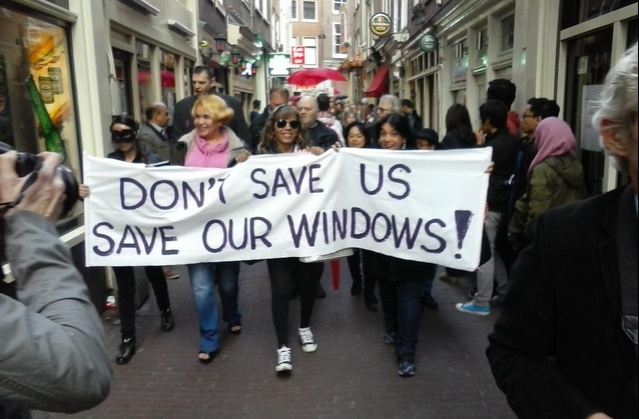Possibly cancelled A&E reality TV show 8 Minutes reneged on its promise to help sex workers. Some argue that their lives were made worse after filming. The subsequent backlash has attracted a lot of negative press for the show; representatives from the show don’t seem to be responding to any journalists’ inquiries, including our own… Continue reading The Week In Links—May 8th
A&E Pulls 8 Minutes From The Air
In the face of increasing media interest and consistent pressure from sex worker activists, A&E has deleted the website for 8 Minutes from its site and pulled the next episode, which was scheduled to air this Thursday night. Tits and Sass left a message with the show’s publicist (and even spelled out the name of… Continue reading A&E Pulls 8 Minutes From The Air
The Price of Knowledge: Discrimination Against Sex Workers In Academia
This essay is based on research interviews I conducted with current and former sex workers who are undergraduate or graduate students at universities across the globe. Their names and other identifying information have been changed. I am subject to the capricious whims of my patriarch, a pimp of sorts, the man who decides the parameters… Continue reading The Price of Knowledge: Discrimination Against Sex Workers In Academia
The Week In Links—May 1st
Hundreds of people protested in Chicago on Tuesday, in support of Baltimore and the many casualties of police brutality, including Mya Hall. A Vietnamese restaurant owner turned her restaurant into a lucrative side business for herself and women being exploited by local factories, which, of course had to be stopped. The San Francisco Sex Worker Film… Continue reading The Week In Links—May 1st
The Amsterdam Window Protest: The War Continues
On April 9th, over 200 Amsterdam sex workers and their supporters protested the closing of legal sex businesses in the Red Light District by the city council. The demonstration consisted of a march from the Amsterdam Red Light District to city hall, where the protesters handed a letter to the mayor demanding the reopening of… Continue reading The Amsterdam Window Protest: The War Continues




